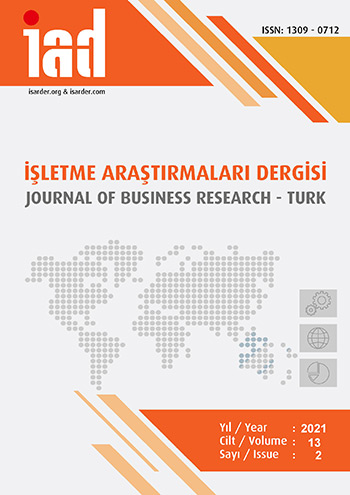The Effects of Customers' Life Style and Values, Volunteer Simplicity and Quality of Service Perception on Customer Satisfaction and Loyalty
DOI:
https://doi.org/10.20491/isarder.2021.1211Keywords:
Lifestyle and Value, Voluntary Simplicity, Service Quality PerceptionAbstract
Purpose – The purpose of this study is to determine the effects of consumers' perceptions of lifestyle and values, voluntary simplicity and service quality on their satisfaction and commitment.
Design/methodology/approach – in this study, the sample consists of 722 consumers living in Istanbul and shopping for ready-made clothing. Customer satisfaction and loyalty are considered as dependent variables, lifestyle and values of consumers as independent variables, and voluntary simplicity and perceived service quality. The data obtained in the study were successfully reduced as a result of the Explanatory Factor Analysis (EFA), then the Confirmatory Factor Analysis (CFA) was performed for construct validity, the goodness of fit was positive, and the Structural Equation Model (SEM) was used to determine the relationships according to the measurement model has been estimated.
Findings – As a result of SEM, life style and values affect customer satisfaction and customer loyalty in a statistically significant positive relationship. Lifestyle and perception of values 1 unit when it increases, customer satisfaction perception is 0.192 unit increasing customer loyalty, 0.491 unit increases. Life style and perception of values affect customer loyalty more when we look at the coefficient size. Perception of volunteer simplicity, customer satisfaction and customer loyalty significantly affect positively. Voluntary perception of simplicity 1 unit when it increases, the perception of customer satisfaction is 0.763 unit increasing customer loyalty, 0.741 unit increases. The perception of voluntary simplicity affects customer satisfaction more than the size of the coefficient. Perception of service quality affects customer satisfaction and customer loyalty in a statistically significant positive way (positive relationship). Service quality perception 1 unit when it increases, the perception of customer satisfaction is 0.653 unit increasing customer loyalty, 0.640 unit increases.
Discussion – The highest impact on customer satisfaction and loyalty comes from the voluntary perception of simplicity. Next, the perception of service quality and the latest perception of lifestyle and values is impressive. There are a limited number of studies on these variables in the literature. The study can be expanded for different sectors and different samples.
Downloads
Published
How to Cite
Issue
Section
License

This work is licensed under a Creative Commons Attribution-NoDerivatives 4.0 International License.





